Investing & Default Mode
There’s no place like home. The vast majority of all human beings prefer the familiar, to stay close to family, use our own language, eat familiar food, operate within our own culture and enjoy known surroundings. That is both natural and ok.
Using the language of the bible, we may call this our Jerusalem. “But you will receive power when the Holy Spirit comes on you; and you will be my witnesses in Jerusalem, and in all Judea and Samaria, and to the ends of the earth.” (Acts 1:8) This verse talks about a missional and centrifugal movement, from home – Jerusalem – to Judea, Samaria and to the ends of the earth. But Jerusalem is a default mode, as it were.
There are countless marketplace ministries around the world, and some have been around for more than a century. But almost all of them are local, focusing on ‘Jerusalem’. This is not a value judgement, just an observation.
We are not against doing godly investing and business in Jerusalem, but we also need to focus on Judea, Samaria, and especially on the ends of the earth. And this is hardly ever a default mode for anyone.
You never have to encourage default mode, because default is default by default. Without a gentle push and an intentional effort default mode – Jerusalem – will kick in.
Thus, we must include the so-called Great Commission in our foundational values, informing both how and where we should invest and do business for God and people. That includes making Christ known among all peoples and nations.
Focusing on “the ends of the earth” is not holier than working in Jerusalem, but it is certainly more complex and often more challenging. That may mean crossing national, cultural and linguistic barriers. Tough and usually never anyone’s default mode. But following Jesus in the marketplace to all peoples is not a matter of convenience, but of choice and obedience. There must be a global thrust - to all nations and peoples!
Today we can thank God for the many investments and businesses which intentionally and professionally operate in areas where the name of Jesus is rarely heard. It is possible, but won’t happen by default.
There is a concentration of human needs and global issues outside our comfort zone. We recognise the fact that poverty and unemployment are often rampant in areas where the name of Jesus is rarely heard and understood.1
In the BAM Global Think Tank conversations and in the foundational BAM documents2 you’ll find an emphasis on unreached peoples, the so-called 10/40 window, on the poor and marginalised, on areas with dire economic, social, environmental, and spiritual needs. This is beyond our default mode, and thus we keep preaching the “ends-of-the-earth”.
It is beyond just pursuing social enterprise. It is an integrated approach to do business, incorporating biblical themes and values into our mission and standard operating procedures. Our faith is not an add on, but something that permeates our lives, investments and businesses. It is about taking our Sunday talk into a Monday walk.
The call is clear and remains from generation to generation, and it comes from Christ himself. He has promised a paraclete – a helper; the Holy Spirit will give us strength and wisdom as we invest and do business among all peoples - to the ends of the earth.3
Mats Tunehag
Footnotes:
1. BAM Manifesto: https://bamglobal.org/lop-manifesto/
See also excerpts from the Wealth Creation Manifesto:
8. Business has a special capacity to create financial wealth, but also has the potential to create different kinds of wealth for many stakeholders, including social, intellectual, physical and spiritual wealth.
9. Wealth creation through business has proven power to lift people and nations out of poverty.
10. Wealth creation must always be pursued with justice and a concern for the poor, and should be sensitive to each unique cultural context.
11. Creation care is not optional. Stewardship of creation and business solutions to environmental challenges should be an integral part of wealth creation through business.
https://bamglobal.org/report-wealth-creation-manifesto/
2. https://bamglobal.org/reports/
3. Bishop Barron’s “Daily Gospel Reflection” from 21 Oct 2022 is relevant as we pursue wisdom and understanding of the task before us: "Friends, the famous call of the Vatican II fathers to “read the signs of the times” is grounded in Jesus’ exhortation in the Gospel for today. Followers of Jesus are meant to look at the world with clear eyes, to see what is happening, to be attentive. But this attention is of a particular type. It is not the attention of the scientist or the philosopher or the politician—though it can include those. It is an attention to the things of God.
I have often argued that many of us today are still enthralled to a deist view of God, whereby God is a distant and aloof first cause of the universe, uninvolved with the world he has made. But Thomas Aquinas taught that God is in all things “by essence, presence, and power,” and that God providentially cares for every aspect of his creation. Therefore, we should expect to see signs of his presence and activity in nature, in history, and in human affairs.
And once we see, we are meant to speak! In a way, followers of Jesus are not looking at the signs of the times for their own benefit, but rather that they might share their prophetic perspective with everyone else. So look around, look with attention, look with the eyes of faith!"
Luke 12:54–59

